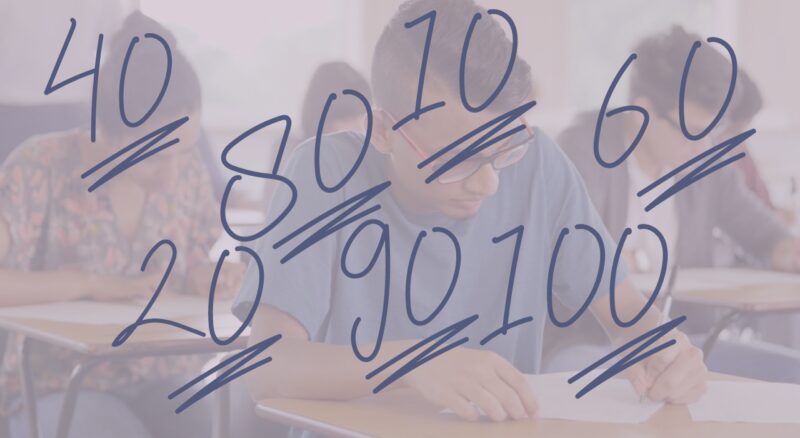In the realm of higher education, Harvard University stands as a beacon of academic excellence and rigor. Its reputation precedes it, making it one of the most sought-after institutions for students worldwide.
But, like any prestigious institution, Harvard’s acceptance standards are high. Many prospective students often find themselves asking: Can I get into Harvard with a 2.0 GPA?
In this blog post, we’ll explore the probability and possibilities of admission to Harvard with a low GPA and the importance of other aspects of the application. Remember that there’s more to an application than just a grade point average!
GPA Requirements

Let’s begin by delving into the specifics of GPA requirements at Harvard. The university has not officially disclosed a “minimum” GPA. However, its class profiles reveal that the average GPA of admitted students tends to be around 3.9-4.0, putting it at the very top of the grade scale.
It is important to remember that the GPA doesn’t exist in isolation. It’s considered within the context of your high school’s rigor, the courses you have taken, and other factors. Still, a 2.0 GPA is significantly below the average for accepted students at Harvard.
Importance of Rigorous Coursework
Despite the significance of GPA, Harvard values rigorous coursework. Taking challenging classes in high school — like Advanced Placement (AP), International Baccalaureate (IB), and honors courses — demonstrates your willingness to challenge yourself academically.
If your GPA is low because you were challenging yourself with rigorous courses, that might reflect better on your application than having a high GPA in less challenging courses. However, keep in mind that a 2.0 GPA, even with rigorous courses, still signifies significant academic difficulties.
Holistic Admissions Process
Harvard, like many other top-tier universities, uses a holistic admissions process. This means they evaluate applicants based on multiple factors, not just academic achievements. They look at your accomplishments, talents, and personality traits — qualities that aren’t necessarily reflected in your GPA.
However, a holistic review process doesn’t mean that academics aren’t important. Your GPA, along with your SAT/ACT scores, gives an indication of your academic readiness for Harvard’s rigorous coursework. A 2.0 GPA might raise concerns about whether you’re academically prepared for Harvard.
Emphasizing Non-Academic Achievements

If your GPA is low, highlighting your non-academic achievements becomes even more important. This could include things like:
- Leadership roles in clubs or organizations.
- Significant accomplishments in extracurricular activities, such as sports, arts, or volunteer work.
- Unique experiences or challenges that you’ve overcome.
Remember, Harvard is looking for well-rounded individuals who can contribute to the campus community in various ways. So, these non-academic aspects could help bolster your application.
Overcoming Academic Shortfalls
Addressing your low GPA in your application might help you present your case effectively. In your personal statement or additional information section, you can explain any extenuating circumstances that might have contributed to your low GPA.
Remember that admissions officers are humans too. They understand that everyone can have off periods and are usually willing to consider explanations. However, it is essential that this explanation doesn’t sound like an excuse and is accompanied by evidence of improvement or resilience.
Importance of Standardized Test Scores

With a 2.0 GPA, performing exceptionally well on standardized tests such as the SAT/ACT becomes essential. Scoring significantly above average can help convince the admissions committee that you’re capable of academic excellence, despite your low GPA.
Remember, though, that while good test scores can help, they likely won’t fully offset a significantly low GPA. Still, they’re an essential part of your application portfolio and should be taken seriously.
Supplemental Essays
Harvard’s supplemental essays are another opportunity for you to showcase your strengths and differentiate yourself from other applicants. This is your chance to show Harvard your intellectual curiosity, your passion, your values — things that a simple numerical GPA can’t convey.
However, excellent essays can’t entirely make up for a 2.0 GPA. They can help provide context and demonstrate your potential, but they won’t erase concerns about your academic readiness.
Letters of Recommendation

Strong letters of recommendation from teachers, counselors, or mentors can be influential. They can provide another perspective on your abilities and potential, giving the admissions committee a more holistic view of you as a candidate.
If your recommenders can highlight your non-academic strengths or discuss your low GPA and your efforts to improve, these letters could potentially tip the scales in your favor.
Early Action/Decision
Applying under Early Action or Early Decision might slightly increase your chances of admission. These admission options demonstrate your interest in the university and show that you’re committed to attending if accepted.
However, this approach comes with its own set of challenges, particularly for students with a 2.0 GPA. Given the already highly competitive nature of these rounds, the low GPA could be even more detrimental.
Potential for Transfer
If you have your heart set on Harvard, but your GPA isn’t sufficient for immediate admission, transferring could be a potential route. You can attend another institution, work hard to achieve an excellent college GPA, and then apply to Harvard as a transfer student.
Remember, though, that transfer admission rates are even lower than first-year admission rates. While this could be a viable option, it should not be the only plan you rely on.
Community College Pathway
Another option for students with a lower GPA could be attending a community college before transferring to a four-year university like Harvard. This allows you to demonstrate your potential at the collegiate level and can help compensate for a low high school GPA.
But again, this path is challenging and should not be seen as an easy way into Harvard. You’ll need to excel in your community college coursework and demonstrate the qualities Harvard is seeking.
Closing Thoughts
It’s essential to be realistic: getting into Harvard with a 2.0 GPA is highly unlikely. The university’s standards are stringent, and a GPA that low raises concerns about a student’s academic readiness. However, this doesn’t mean that all hope is lost.
Your application consists of more than just your GPA. If you can demonstrate extraordinary talents, intellectual curiosity, resilience, and potential in other areas, there’s a chance, albeit small.
But remember, Harvard is only one of many excellent universities out there. Ultimately, the goal should be to find a college that is the best fit for you — where you can grow, thrive, and achieve your goals.



